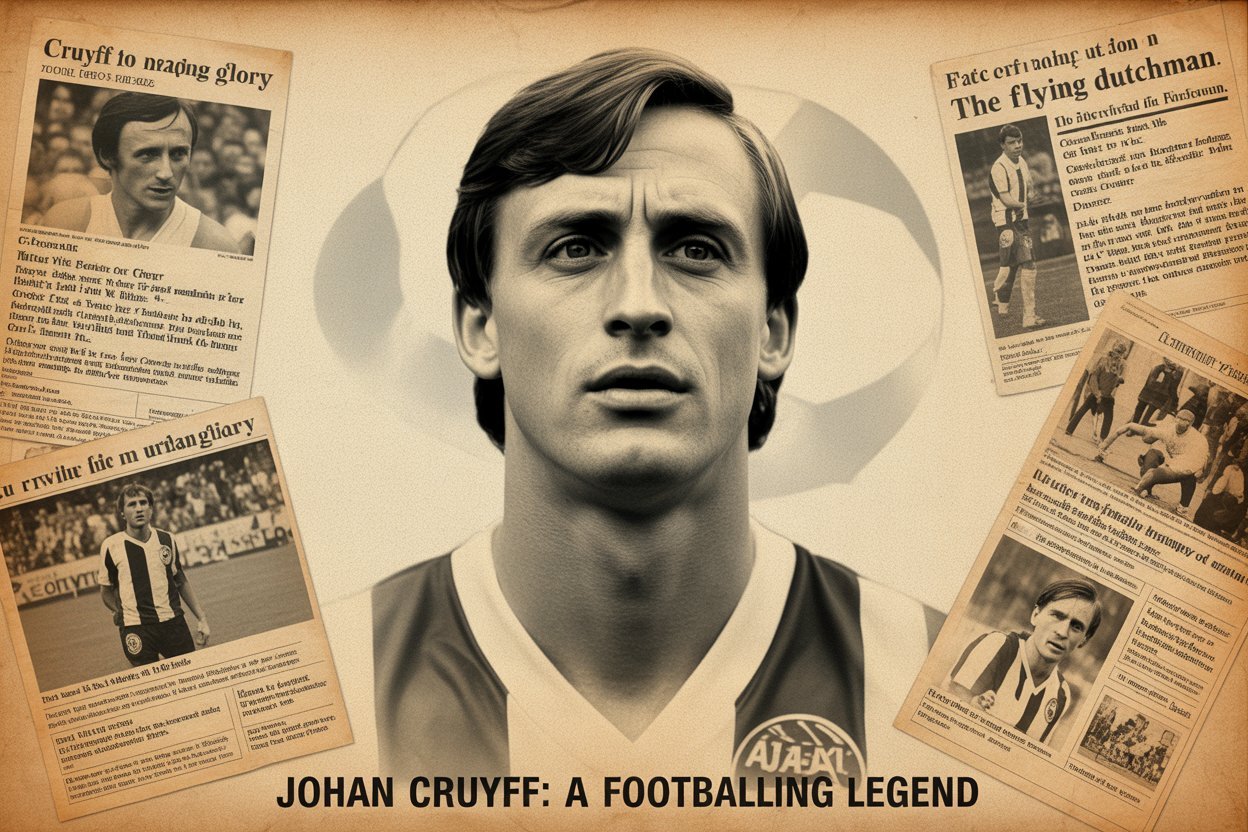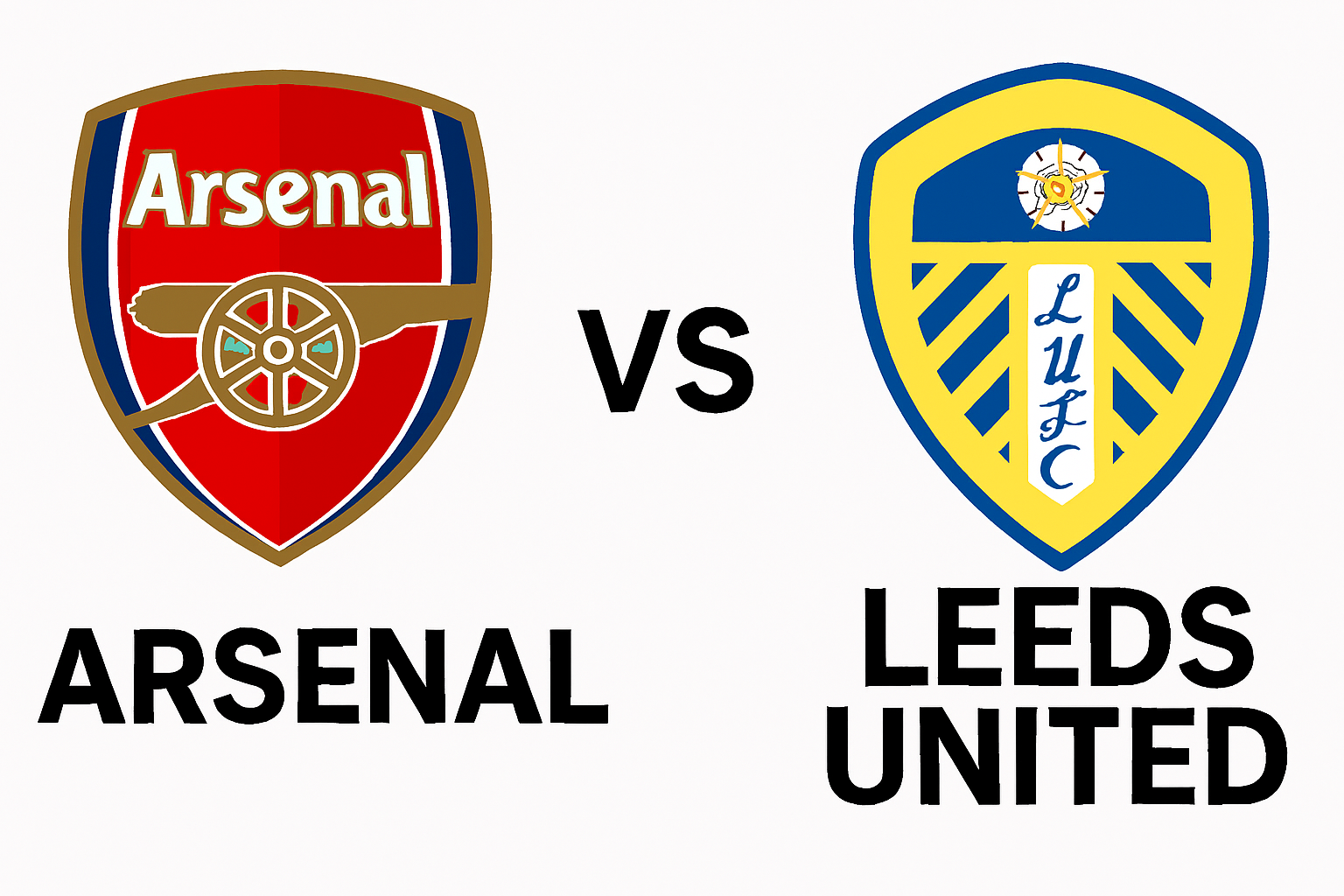Few names in football carry the weight, respect, and philosophical heft as Johan Cruyff. When we discuss Johan Cruyff, we speak not only of one of the most gifted and intelligent players to ever grace the game, but a revolutionary who helped shape the very essence of football.
Whether you casually follow the sport, or you’re an avid fan, you’ve experienced his influence knowingly or not. From the Cruyff Turn to the development of Tiki-taka, his impact can be seen in clubs, countries, coaches, and players from the football universe. In this piece we’ll explore his journey, principles, and why he is still relevant in our modern age.
The Early Life and Rise of Johan Cruyff
Hendrik Johannes Cruyff is more popularly known as Johan Cruyff. He was born in 1947 in Amsterdam. Johan lived in a working-class area in Amsterdam, close to the Ajax stadium. From the first memories Johan has, he remembers being exposed to football. His father died when he was 12 years old, but that did not hinder his burgeoning love for the game.
Johan’s talent was obvious, and Ajax gave him his first appearance at 17 years old. Johan was skinny, quick, and he was forever intelligent on the ball. His style of play was uniquely Johan. His beautiful game was not defined by power or physicality, but rather timing, space, and vision. Johan did not play football; he thought football.
Cruyff and Ajax: The Birth of Total Football
During the 1960s and early 70s Ajax developed into one of Europe’s leading teams. Rinus Michels was Ajax’s coach, supported by Johan Cruyff, the leader on the pitch. Ajax created “Total Football” which enabled players to interchange positions, press the opponent and exploit space.
Cruyff was able to transition gracefully between midfield and forwards, his intelligence and reading of the game helped him create plays and score goals. Over his time with Ajax, he won eight Eredivisie titles and three consecutive European Cups (1971-1973). His performances were effective and beautiful, changing the way the game could be perceived.
Cruyff’s Impact at Barcelona as a Player
Johan Cruyff joined FC Barcelona in 1973, at a time when the club was underperforming. Suddenly everything changed. The first year, they won their first La Liga title in 14 years – Cruyff was an instant hero, not just for the goals and assists, but for the way he played.
I still distinctly remember his famous goal for Barcelona away to Atlético Madrid, where Cruyff volleyed the ball in mid-air from an impossible angle! A brilliant goal, and still one of the greatest moments in Spanish football history. Cruyff won over Barcelona fans and earned the respect of teammates alike, and he was the very definition of a player who was creative, in control, and calm under pressure.
The Cruyff Turn and His Unique Playing Style
The world saw a new type of player in Johan Cruyff. He wasn’t just a goal scorer, although he scored lots of them. He was about controlling tempo, creating space where there was none, and making everyone around him better.
One of Cruyff’s best-known contributions is the “Cruyff Turn” introduced at the 1974 World Cup. This technique of dragging the ball behind the standing leg and spinning away from the opponent made worldwide headlines. It was more than a trick; it was a mindset of outsmarting your opponent.
Cruyff and the Dutch National Team
During the 1974 World Cup, Cruyff was the captain and creative inspiration for the Netherlands. Finishing as runners-up, that Dutch side continues to be regarded as one of the most glamorous teams ever. Their style of play: fluid, coordinated, daring and embodying Total Football.
Johan Cruyff led by example: generating attacks with pinpoint through balls, the rapid succession of passes and an awareness of space matched by very few. Cruyff’s Netherlands left much to be desired as they once again lost to West Germany, however Cruyff and the Netherlands altered the perceptions of how football could be played. They did not win the trophy, but they won the hearts and minds of football purists.
Transitioning from Player to Coach
After he stopped playing, Johan Cruyff was never detached from the game. Rather he looked like he was involved behind the scenes, starting first as Ajax manager, and then as the head coach of Barcelona.
At Barcelona he helped to lay the groundwork for what would become the club’s most successful period. He developed a philosophy regarding the way football should be played based on short passing, team rotation, and attacking football. He was responsible for the development of Barcelona’s now famous youth academy, La Masia, as the real engine behind the club’s success.
He also led Barcelona to its first European Cup in 1992, and his ‘Dream Team’ didn’t just know how to win titles, they entertained fans by playing a style that was, and is, the hallmark of the club.

Cruyff’s Legacy in Modern Football
The legacy of Johan Cruyff is evident all over football today. Pep Guardiola, Xavi and even Mikel Arteta have mentioned the impact of his philosophy on their own views. Teams that value possession, movement and intelligence, like Manchester City, Barcelona, and the national teams like Spain, have learned to play in Cruyff’s image
Cruyff’s vision was for football to be beautiful, not merely effective. He was adamant that players were to think independently and to understand the game in its entirety. To him, football was not just a trade but a craft, with every player as an artist.
The Principles That Made Cruyff Different
Johan Cruyff had a philosophy on life and on football, and below are the main points of that philosophy:
- Genius is simple: The best solution is usually the simplest one.
- Space is the most important element in football: Finding and exploiting space is everything.
- Ball control dictates the game: Teams should control the ball, not chase.
- Creativity over conformity: Allow players to think, not follow.
These unequivocal tenets went beyond football; it was how Cruyff lived his life. Cruyff was known for his honesty, fervently held opinions, and contempt for bureaucracy in football organizations. He stood resolutely for what he believed, even it cost him.
The Champions Who Embody Cruyff’s Ideas Today
Today, the clubs that lift trophies often look like the blueprint Johan Cruyff designed decades before. In the 2024–25 season:
- Paris Saint-Germain scored their UEFA Champions League title. Their attractive, attacking football was orchestrated by their progressive manager.
- Chelsea claimed the FIFA Club World Cup with organized pressing, young players, positional awareness and hard work.
- In women’s football, England won the UEFA Women’s European Championship by playing tactically intelligent and fast-paced football.
These victories are not authored by Johan Cruyff but live in the echo of his belief. His spirit is alive in the triangles formed by modern midfields, the patient build-up of dominating teams, and the courage in young players trusted to come up big.
Beyond Football: The Humanitarian Side of Johan Cruyff
Cruyff’s legacy will go beyond the pitch. After overcoming a battle with lung cancer, he devoted himself to philanthropy. He started the Johan Cruyff Foundation, which promotes sports for children with disabilities and builds accessible sports courts around the world.
He considered sport to be a vehicle for education, discipline, and happiness. His humanitarian work earned him respect above and beyond even fans and players, from world leaders and educators.
Remembering Johan Cruyff
The game of football lost more than a player and a coach when Johan Cruyff died in March of 2016. The game was lost by a teacher! His thoughts and ideas are now immortal. His words are being examined. His matches are continuing to be viewed. His philosophy is being used in boardrooms, dugouts, fields and academies around the world. He was a rebel, a creative, and a magician. His football was about more than just winning; it was about winning with beauty, winning with style, and winning with smarts.
Conclusion:
Almost no one in the history of sport has had a legacy as impactful and lasting as Johan Cruyff. His career as a player, coach and thinker redirected the future of football forever. He reminded us that football is more than strategies and trophies; it is expression, freedom and vision.
The stadiums, systems and champions of today, owe an invisible debt of gratitude to a man that reimagined what the game could be. And if football is being played, the ideas of Johan Cruyff will never die.



